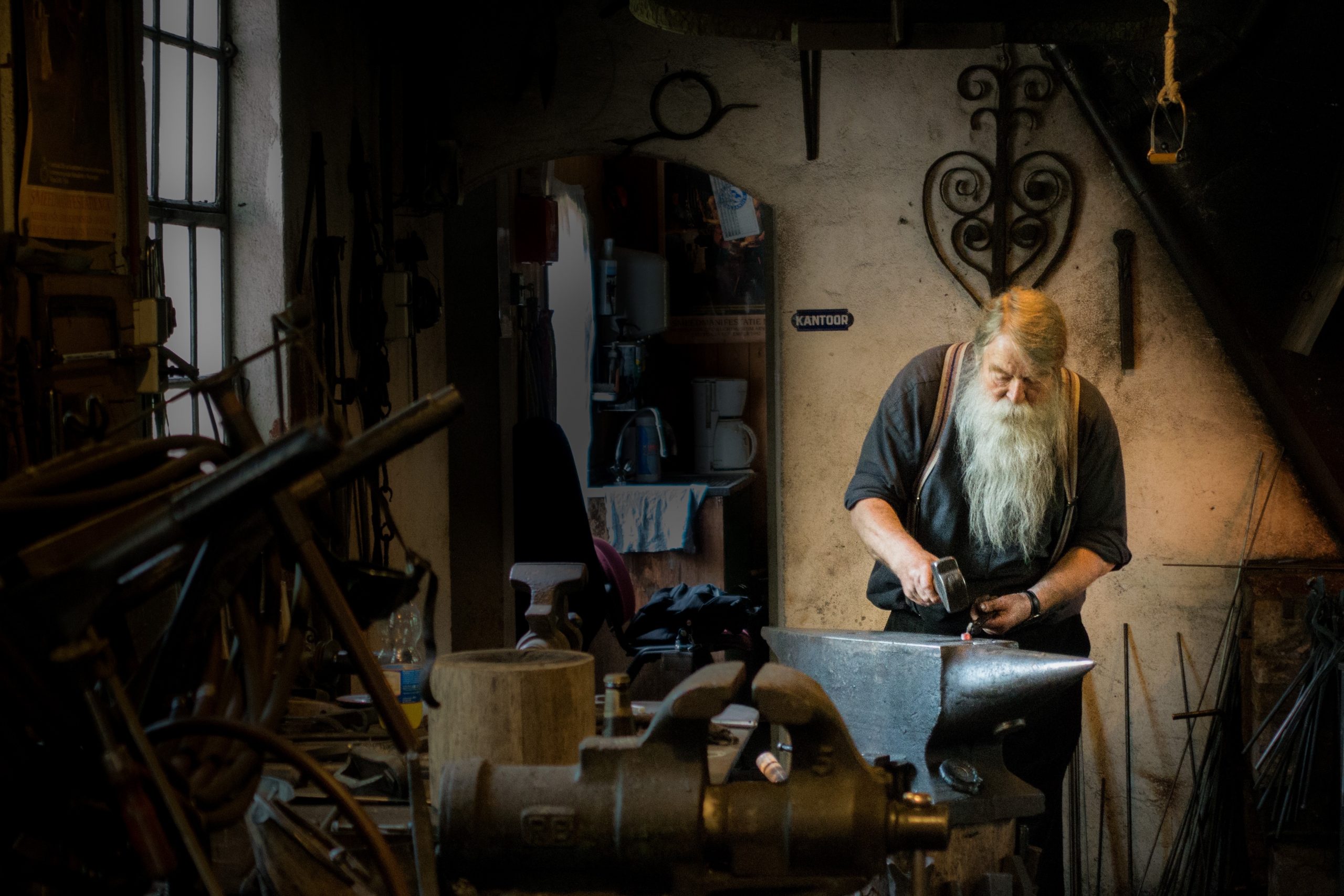A shopping trip through the hardware store does not make a craftsman; my wife will confirm that. Only after many hours on YouTube, numerous unsuccessful attempts, and the support of a real expert as a coach can we hope for a viable mastery of the craft. The best assortment of tools is neither sufficient for proficiency nor necessary at the beginning. Practice makes perfect. The difference between a good craftsman and me is a few thousand hours of practice. And you can see that difference — at least that’s what my wife says.
We all have the ability to ride a bicycle. But for this ability to become a skill, it takes a lot of practice and, especially in the beginning, a helping hand and feedback from parents. It’s not enough to select the best bike and suitable equipment at the store. Skills only develop through practice. There are certainly exercises, procedures and training plans that lead to proficiency more quickly than others. Training wheels on the bike also lead to the goal, but the better option is to first practice balance on a running bike and then learn to pedal, brake and finally shift gears.
We are born with faculties and powers capable almost of anything, such at least as would carry us farther than can easily be imagined: but it is only the exercise of those powers, which gives us ability and skill in any thing, and leads us towards perfection.
John Locke
If skills are already a matter of practice at the individual level, this is all the more true wherever several or many people are working toward a common goal, and thus smooth cooperation itself becomes a desirable skill. An outstanding soccer team is not created simply by signing up first-class individuals and explaining the strategy to them in a webinar. Working together requires practice and the support of an experienced coach. Only then does the whole become more than the sum of the parts.
In principle, we also all have the ability to work together in a self-organized, responsible, and ultimately agile manner and to explore solutions to problems together step by step, or rather, experiment by experiment. Kindergarteners are great at this, which is why they do better in the Marshmallow Challenge than business school graduates, lawyers, or CEOs. In the depths of the functionally optimized hierarchies of our corporations, however, these abilities eke out a dreary existence. Everyone is only responsible for their own tiny section of value creation and only thinks within their own role description: service by the book in the departmental silo.
It is therefore grossly naive to hope that organizations will become agile by copying Spotify or introducing SAFe. All of this can be a possible starting point for a joint learning journey, just as you can start riding a bicycle with training wheels or a running bike. But it is crucial to recognize, on the one hand, that a longer phase of practice is inevitable and, on the other hand, that this should be well accompanied by appropriate coaches. Too often, however, the patterns of classic organizational development and change management take hold instead: analyze the problem, compare solutions, select and roll out — done. Mount training wheels, complete the webinar and then downhill tomorrow.
The focus of an agile transformation is too often on selecting or designing the “right” model. This is often justified with the argument that you don’t have to repeat the mistakes of others. I, too, don’t like to see my children fall off their bikes, just like all the children before them did during their first exercises. And it would be fantastic to become a passable craftsman in no time at all with the right tools. But no pain, no gain. Practice makes perfect. Repeating the mistakes of others is not a waste, but a good investment in learning new skills. “Per aspera ad astra” is a saying that dates back to Seneca; loosely translated, it means, “Through toil you reach the stars.” However, with a cheap Spotify copy or SAFe by the book, you won’t be able to overcome the gravity of your own encrusted structures.






6 Comments
Excelente artigo para reflexão. Que tenhamos mais artigos como este.
Obrigado, Márcio! Tenho a certeza que encontrarás mais impulsos interessantes aqui no arquivo.
very interesting. Thanks!
Thank you so much for your feedback. Much appreciated.
Practice makes perfect! thanks
Thank you!